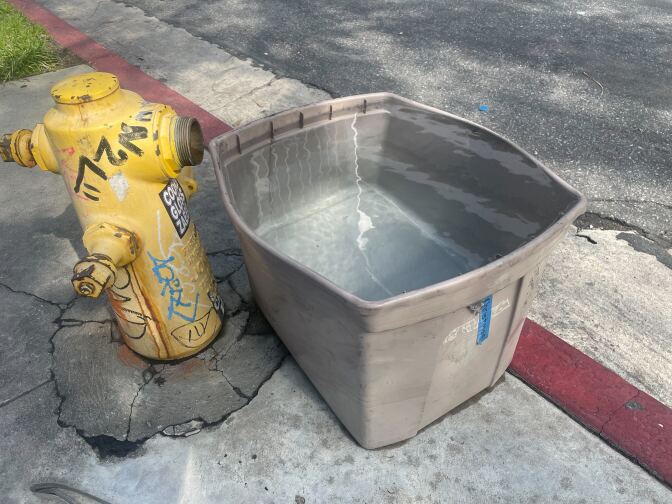This story is free to read because readers choose to support LAist. If you find value in independent local reporting, make a donation to power our newsroom today.
What You Should Know About The Off-Season Mosquitoes That Are Vexing Us This Winter

Good news for mosquito haters across Southern California: It's still too early in the year for most mosquito species to thrive, despite all the recent record-setting rain that the pesky insects thrive on.
However, UC Riverside biologist Anandasankar Ray said he couldn't rule out the possibility that some mosquitoes will use the wet weather to breed — especially since there's been anecdotal evidence in recent years of invasive mosquito species being active in the winter, including the Aedes aegypti and Aedes albopictus that have moved into the area.
"I myself in Riverside am finding once in a while I have seen the stray adult Aedes mosquitoes even now [in the winter]," Ray said. "So there is something going on where they're adapting to colder climates."
A stray mosquito here and there normally wouldn't be a cause for concern. But according to Ray, with California's cold winter weather, there shouldn't be any mosquito activity at all this time of year.

"Not only is the range spreading because of the climate change — you get more parts of California that are accessible to them to grow and breed — but it seems to me that there's a small possibility, but a real possibility, that they are adapting to colder climates," Ray said.
Scientists still haven't studied how prevalent these winter mosquitoes might be or what might be causing the cold-blooded insects to adapt to colder climates, he added. In the meantime, he doesn't expect a significant boom in mosquitoes this February, though future rainstorms this spring will likely lead to more mosquitoes.
Tips to keep the bloodsuckers away
Ray shared these tips for when mosquito season starts again in earnest in March — or for anyone who wants to get a head start:
- Mosquitoes need standing water to breed, so dump out any receptacle bigger than a bottle cap, especially after it rains.
- Treat standing water that can't be emptied with a bacterial toxin that kills mosquitoes but is harmless to humans and other animals.
- Be mindful of sprinklers and other watering systems in your home and try to prevent them from causing any puddles.
- Check with your neighbors when you spot a mosquito near your home, since mosquitoes tend not to travel far from where they hatch.








